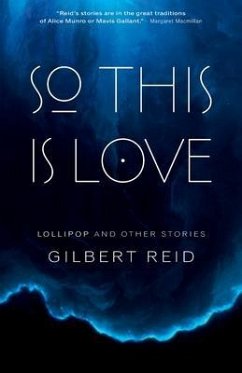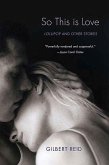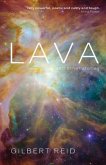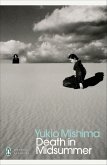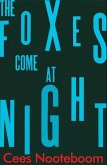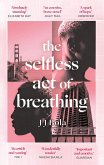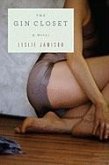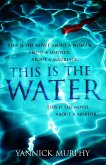In nine dramatic, vividly etched stories, SO THIS IS LOVE explores love and hate, the tangle of fascination, perversity, ambivalence, and power at the heart of intimacy. In "Pavilion 24," set in the Yugoslav Civil War of the 1990s, a Muslim militiaman, his leg amputated above the knee, finds himself lying, helpless, next to his deadly enemy, a beautiful young Serb, her warm body pressed against his. The girl is blind; without him, she will die; without her, he will die. Blindness returns - metaphorically - in "Soon We will be Blind." Sitting in the dark on the porch of a sprawling farmhouse on a hot rainy summer night, drinking beer with her father, a young woman is swept back to the distant past, to a childhood rape. She remembers, too, how, in that same summer, she met the most unique and beautiful person ever to enter her life. In "After the Rain," it is April in Paris, in the 60s or 70s. A jaded diplomat, who is with the woman he truly loves, decides to have sex - out of curiosity or just for the hell of it - with an exotic and beautifully fragile golden-skinned girl. Can he defy the gods? In "Irony is ..." a cynical professor of literature is marooned on an isolated beach on a volcanic island, with an alluring, androgynous French literary theorist. As she weaves her intricate cerebral spell, he finds himself playing a starring role in her perverse erotic theatre. But, is he a star, or merely an extra, merely part of the décor? "Hey, Mister!" plunges us into a bloody civil war in Africa. Can a daring, white photo-journalist, famous for her exclusives on human suffering, pluck one small boy - amid millions - from certain death and bring him home to a new life in Paris? "The Champion" sweeps us into the twilight of the Italian dolce vita. A cynical white writer and his exquisitely beautiful offbeat young black friend search the beaches of the Mediterranean coast, looking for a violent deadbeat, a man once nicknamed "the champion." With disabused cynical eyes, the duo delves the depths of toxic love and sexual addiction. In "Lollipop," among flirtations and bottles of wine, a voluptuous young woman, her mind frozen in the past after an automobile accident and with a scarred, half-shattered face, bets she can learn the lyrics of "Lollipop." When she fails, she walks naked into the sea, a wounded goddess disappearing into a blaze of wintery sunlight. In "Bevete del Vino," set in Rome's Left Bank, Trastevere, a world-weary 50-year-old international civil servant in his fifties finds himself sharing his life with a young Englishwoman who reads Kant and Wittgenstein in bed. She, he realizes, is infinitely more mature and subtle than he. In "The Road out of Town" what was once a real farm village has become a tinsel-like facade, a tourist attraction, surrounded by endless featureless suburbs, a stage set where everything is false and everyone a stranger. It is to this Ontario village that an economist who has long lived in Paris, returns. Seeing the village as it has now become, he remembers the village as it was. He is swept into his own childhood. Suddenly, in the luminous world of memory, he realizes what it was - the world that has been lost, the life he never lived, the person he never became. And, at the core of this life-long betrayal and forgetfulness, he remembers too, who she was, the most beautiful, tender, fragile, brave girl he ever knew. Yes, it was love. But he didn't know it at the time. Only now does he realize ... It is strange, he thinks, how easily you can forget who and what you were, and what your life might have been.
Hinweis: Dieser Artikel kann nur an eine deutsche Lieferadresse ausgeliefert werden.
Dieser Download kann aus rechtlichen Gründen nur mit Rechnungsadresse in A, D ausgeliefert werden.
Hinweis: Dieser Artikel kann nur an eine deutsche Lieferadresse ausgeliefert werden.

